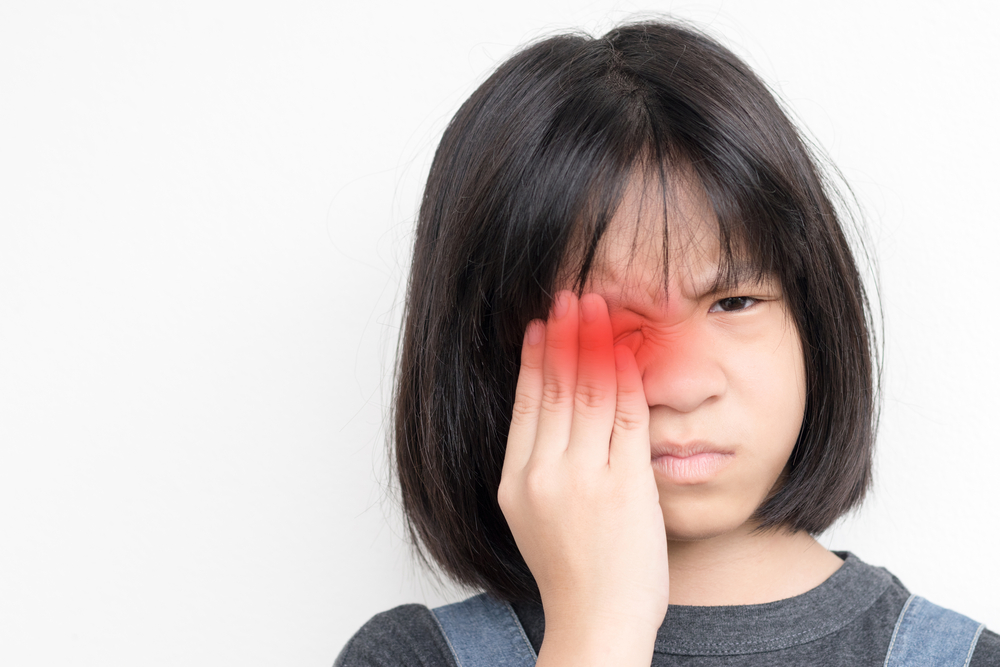April 10, 2025

As a parent, you know how quickly illnesses can spread among kids—whether at school, daycare, or even during playdates at Bradley Lake Park. One of the most common (and frustrating) infections is conjunctivitis, more commonly known as pink eye. It’s itchy, contagious, and can leave your child uncomfortable for days. With a few simple habits, you can reduce the risk of pink eye and help keep your child’s eyes healthy and comfortable.
Understanding Pink Eye
Pink eye is an inflammation of the conjunctiva, the thin membrane covering the white part of the eye. It can be caused by viruses, bacteria, allergens, or irritants like smoke or chlorine from swimming pools. The viral and bacterial types are highly contagious and spread through direct contact, making it especially tricky for kids who love to touch everything.
Teach Good Handwashing Habits
One of the best ways to prevent pink eye is regular handwashing. Kids touch their faces constantly, and if they’ve been around someone with pink eye, those germs can quickly spread to their eyes. Teach them to wash their hands with soap and water for at least 20 seconds—especially after playing outside, using shared toys, or being in public spaces like the Puyallup Public Library or a local indoor play area.
Avoid Touching the Eyes
Even adults struggle with this one, but it’s crucial. Remind your child to avoid rubbing their eyes, especially if they feel irritated. If they do need to touch their eyes, encourage them to use a clean tissue rather than their hands.
Keep Hands and Faces Clean
Regularly wiping your child’s hands and face can help remove any lingering bacteria or viruses before they reach the eyes. Consider using gentle, hypoallergenic wipes after school or outdoor activities.
Disinfect Shared Items
If your child attends daycare or school, talk to teachers about wiping down commonly shared items like crayons, scissors, or keyboards. At home, regularly clean toys, doorknobs, and any other high-touch surfaces.
Encourage Personal Towel and Pillow Use
Pink eye can easily spread through shared towels, pillows, and washcloths. Make sure each family member has their own, and wash them frequently—especially if someone in the house has been sick.
Avoid Sharing Eye Care Items
Never share eye drops, contact lenses, or even makeup products like mascara or eyeliner. While young kids may not use these items, they may play with their older siblings’ things, so keep them out of reach.
Address Allergies Early
If your child suffers from seasonal allergies, managing symptoms early can help prevent allergic conjunctivitis. Saline rinses, allergy medications (as recommended by a doctor), or limiting outdoor time on high pollen days in Puyallup can make a difference.
What to Do If Your Child Gets Pink Eye
Even with the best precautions, pink eye can still happen. If you notice symptoms like redness, itching, tearing, or discharge, keep your child home from school and contact our eye doctor. Treatment depends on the cause—bacterial conjunctivitis may require antibiotic eye drops, while viral pink eye usually clears up on its own.
Keeping Your Child’s Eyes Healthy
Preventing pink eye isn’t just about hygiene—it’s about overall eye health. Regular eye exams help catch potential issues early and ensure your child’s vision is developing properly. At East Main Vision Clinic, we’re here to support your family’s eye care needs, from routine prediaric check-ups with Dr. Santa Elena to urgent care for pink eye and other eye infections.
If your child is experiencing pink eye or you have questions about their eye health, schedule an appointment with East Main Vision Clinic. Visit our office in Puyallup, Washington, or call (253) 780-0700 today.



